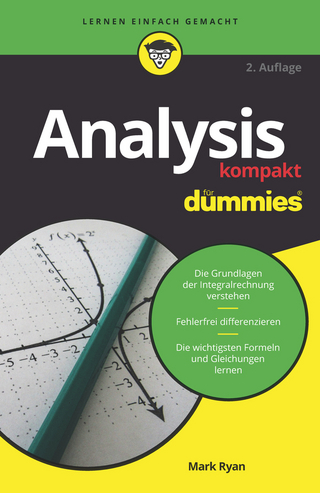
Symmetry and Integration Methods for Differential Equations
Seiten
2010
|
Softcover reprint of the original 2nd ed. 2002
Springer-Verlag New York Inc.
978-1-4419-3147-4 (ISBN)
Springer-Verlag New York Inc.
978-1-4419-3147-4 (ISBN)
This book is a significant update of the first four chapters of Symmetries and Differential Equations (1989; These methods systematically unify and extend well-known ad hoc techniques to construct explicit solutions for differential equations, especially for nonlinear differential equations.
This book is a significant update of the first four chapters of Symmetries and Differential Equations (1989; reprinted with corrections, 1996), by George W. Bluman and Sukeyuki Kumei. Since 1989 there have been considerable developments in symmetry methods (group methods) for differential equations as evidenced by the number of research papers, books, and new symbolic manipulation software devoted to the subject. This is, no doubt, due to the inherent applicability of the methods to nonlinear differential equations. Symmetry methods for differential equations, originally developed by Sophus Lie in the latter half of the nineteenth century, are highly algorithmic and hence amenable to symbolic computation. These methods systematically unify and extend well-known ad hoc techniques to construct explicit solutions for differential equations, especially for nonlinear differential equations. Often ingenious tricks for solving particular differential equations arise transparently from the symmetry point of view, and thus it remains somewhat surprising that symmetry methods are not more widely known. Nowadays it is essential to learn the methods presented in this book to understand existing symbolic manipulation software for obtaining analytical results for differential equations. For ordinary differential equations (ODEs), these include reduction of order through group invariance or integrating factors. For partial differential equations (PDEs), these include the construction of special solutions such as similarity solutions or nonclassical solutions, finding conservation laws, equivalence mappings, and linearizations.
This book is a significant update of the first four chapters of Symmetries and Differential Equations (1989; reprinted with corrections, 1996), by George W. Bluman and Sukeyuki Kumei. Since 1989 there have been considerable developments in symmetry methods (group methods) for differential equations as evidenced by the number of research papers, books, and new symbolic manipulation software devoted to the subject. This is, no doubt, due to the inherent applicability of the methods to nonlinear differential equations. Symmetry methods for differential equations, originally developed by Sophus Lie in the latter half of the nineteenth century, are highly algorithmic and hence amenable to symbolic computation. These methods systematically unify and extend well-known ad hoc techniques to construct explicit solutions for differential equations, especially for nonlinear differential equations. Often ingenious tricks for solving particular differential equations arise transparently from the symmetry point of view, and thus it remains somewhat surprising that symmetry methods are not more widely known. Nowadays it is essential to learn the methods presented in this book to understand existing symbolic manipulation software for obtaining analytical results for differential equations. For ordinary differential equations (ODEs), these include reduction of order through group invariance or integrating factors. For partial differential equations (PDEs), these include the construction of special solutions such as similarity solutions or nonclassical solutions, finding conservation laws, equivalence mappings, and linearizations.
Dimensional Analysis, Modeling, and Invariance.- Lie Groups of Transformations and Infinitesimal Transformations.- Ordinary Differential Equations (ODEs).- Partial Differential Equations (PDEs).
| Erscheint lt. Verlag | 6.12.2010 |
|---|---|
| Reihe/Serie | Applied Mathematical Sciences ; 154 |
| Zusatzinfo | X, 422 p. |
| Verlagsort | New York, NY |
| Sprache | englisch |
| Maße | 155 x 235 mm |
| Themenwelt | Mathematik / Informatik ► Mathematik ► Analysis |
| Mathematik / Informatik ► Mathematik ► Angewandte Mathematik | |
| Naturwissenschaften ► Physik / Astronomie | |
| ISBN-10 | 1-4419-3147-3 / 1441931473 |
| ISBN-13 | 978-1-4419-3147-4 / 9781441931474 |
| Zustand | Neuware |
| Haben Sie eine Frage zum Produkt? |
Mehr entdecken
aus dem Bereich
aus dem Bereich
Buch | Softcover (2024)
De Gruyter Oldenbourg (Verlag)
59,95 €


